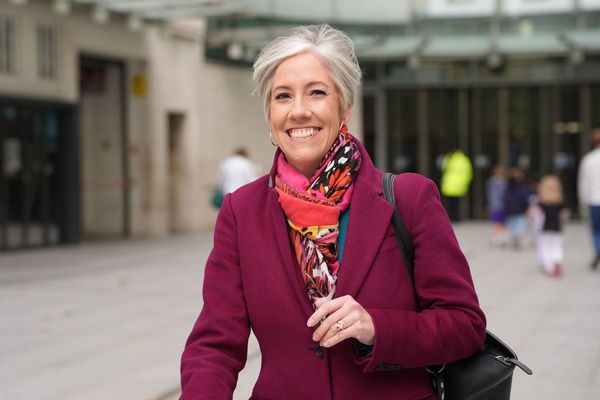There were barely nine years between Danielle Brown discovering her calling and becoming a double Paralympic champion.
The 33-year-old from West Yorkshire was diagnosed with complex regional pain syndrome as a teenager - with constant chronic pain in her feet burdening an active adolescence. But it was on Brown’s 15th birthday when a discovery of her talents with a bow and arrow sent her on an obsessive mission to Paralympic glory.
While remarkably balancing the rigours of a first-class law degree, Brown enjoyed unprecedented success in Para Archery, dominating the international circuit for years and claiming her maiden Paralympic gold at Beijing 2008. She even became the first disabled athlete to represent England in able-bodied events at the Commonwealth Games as she starred in a team victory in Delhi two years later.
That Brown could channel a life-long debilitation into a path for hope, ambition and glory is truly inspirational. But two years after a career pinnacle of retaining gold at London 2012, World Archery classifiers told her a rule change meant she could not defend her title for the second time at the Rio 2016 games.
“It was completely out of the blue,” she told Mirror Sport. “I knew the rules were changing but I didn’t think they’d affect me. I’ve got a disability and I’ve had it since I was a teenager. It affects my ability to walk and stand up so a lot of my life revolves around it. To be told I wasn’t disabled enough was a complete shock. I just felt lost. It took doctors five years to figure out what my disability was and I just thought these classifiers don’t understand.”
Parasports breed possibility and opportunity in a world of division, but huge issues arise when its inclusivity comes into question. Despite appeals and protests, Brown could no longer compete in a field she had monopolised with her own excellence as World Archery concluded her disability did not impact performance.
“I held quite a bit of resentment and I went through a complete identity crisis,” she admitted. “I was an elite athlete and then I wasn’t, literally overnight. I went through all the different stages of grief. I felt like someone had picked me up and dumped me in the middle of the ocean and I had to swim to shore without knowing which direction to go.
"I was a person with a disability who wasn’t disabled enough. I couldn’t even manage to get up a step or to carry a cup of tea without walking a metre and flinging it everywhere and I just thought ‘why can’t they see this?’”
Brown’s UK Sport athlete funding soon ended as the ramifications of World Archery’s decision brutally hit home. Recognised with an MBE for her services to archery, she felt abandoned by the national governing body she had represented as she searched for a new purpose and financial stability.
“You’re acting on fight or flight," she explained. "I lost everything; I lost my funding, sponsorship and I’ve got bills to pay and a mortgage. In the short-term I needed money to cover my bills and from there I could figure it all out. I love the sport but I fell out of love with my national governing body.
"I’d given the sport so much and when I needed their help and support they didn’t even let me train at the national training centre. I was given a piece of paper telling me how to write a CV and that was all the support I got from them. I wanted to represent my country but I didn’t want to represent them anymore.”
A former world number one, Brown believed a new life working starting at the bottom of the company would have been "soul-destroying". However, an identity that had been so consumed by bow and arrow was able to shift towards a new focus. Brown instead started her own business and is now thriving in her new career as a keynote speaker, trainer and children’s author.
Despite such an exasperating end to her professional sporting career, Brown will never forget the highs of Beijing and London that validated her quest for perfection. And she has urged those in power to enable aspiring disabled athletes to achieve the dreams that she once did not think were possible.
“I think the rules are now very exclusive,” she added. “For other people they need to change. London 2012 broke down so many barriers for disability but in doing so the Paralympics put some additional ones up. We need to bring more people together and have more conversations.
“The International Paralympic Committee, the classifiers and the athletes need to have an open, frank discussion and move things forward in a really inclusive way. Sport helped me come to terms with my disability and people should be measured on how much their disability affects them rather than people being excluded.”







